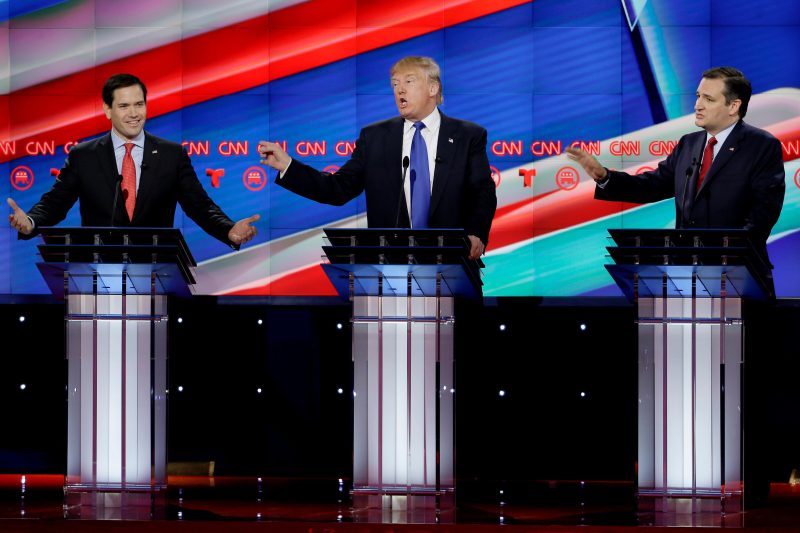The 2016 U.S. Presidential primaries were characterized by unprecedented drama and chaos, reminiscent of a supermarket tabloid gutter fight rather than the dignified political process traditionally associated with presidential elections. At the center of this spectacle was the polarizing figure of Donald Trump, who shattered norms and upended the Republican Party establishment with his bombastic rhetoric and unconventional campaign tactics.
One of the key ways in which Trump transformed the 2016 primaries into a circus-like atmosphere was by employing derogatory nicknames and personal attacks against his opponents. From Low-energy Jeb to Little Marco and Lyin’ Ted, Trump encapsulated his opponents in catchy, albeit demeaning, monikers that drew attention away from policy discussions and towards petty schoolyard taunts. This strategy not only deflected criticism away from his own shortcomings but also dominated media headlines and cemented his reputation as a formidable force in the race.
In addition to his use of derogatory nicknames, Trump’s unfiltered and often inflammatory language further exacerbated the reality-show-like atmosphere of the primaries. His off-the-cuff remarks on sensitive issues such as immigration, trade, and foreign policy stirred controversy and captivated audiences, drawing attention away from substantive policy discussions and towards sensational soundbites. Trump’s willingness to eschew political correctness and speak his mind resonated with a segment of the electorate disillusioned with traditional politicians, further fueling his rise within the Republican Party.
Furthermore, Trump’s mastery of social media played a crucial role in transforming the 2016 primaries into a spectacle. With his prolific presence on Twitter, Trump leveraged the power of social media to bypass traditional media gatekeepers and communicate directly with his supporters. His controversial tweets, often riddled with typos and misspellings, generated buzz and provoked outrage, ensuring that he remained at the center of the media spotlight throughout the primaries.
Beyond his use of nicknames, inflammatory language, and social media savvy, Trump’s outsider status and brash persona lent an air of unpredictability and excitement to the 2016 primaries. His willingness to challenge conventional wisdom and defy political norms appealed to a segment of the electorate hungry for change and disruption in Washington. By presenting himself as a political outsider who was unafraid to shake up the status quo, Trump positioned himself as a populist champion against a corrupt and out-of-touch political establishment.
In conclusion, Donald Trump’s unprecedented campaign tactics and persona turned the 2016 Republican primaries into a raucous and chaotic affair, more reminiscent of a supermarket tabloid gutter fight than a sophisticated political process. By using derogatory nicknames, inflammatory language, social media, and his outsider status to dominate the spotlight and appeal to disaffected voters, Trump reshaped the political landscape and paved his way to the Republican nomination and ultimately the presidency. The legacy of the 2016 primaries, marked by spectacle and sensationalism, continues to reverberate through American politics today.



























